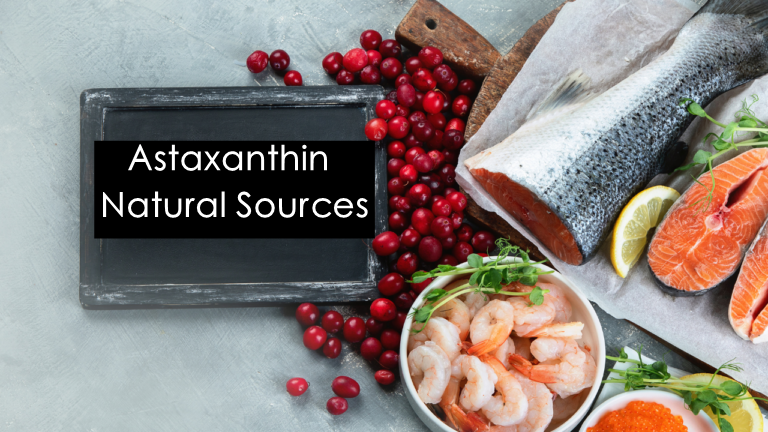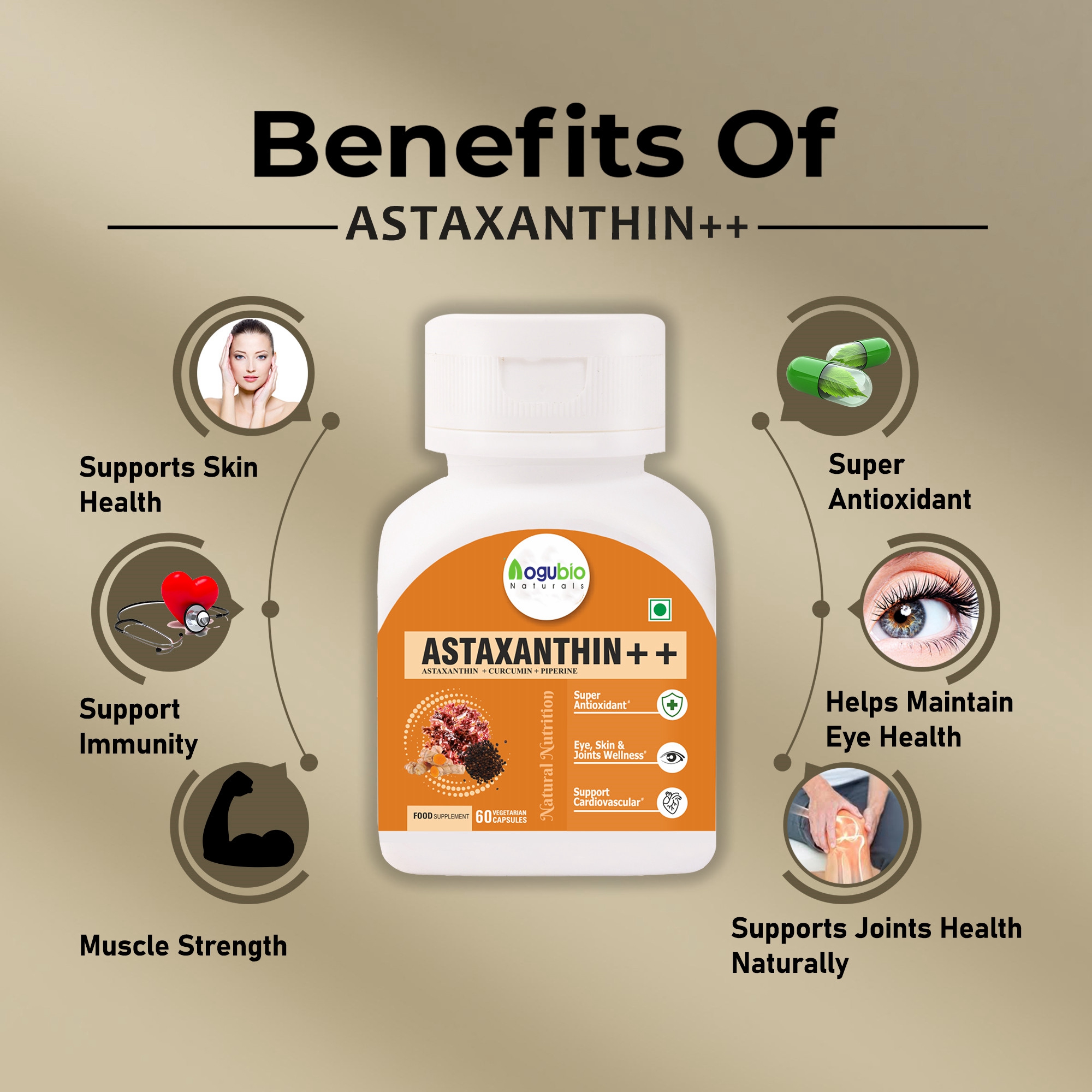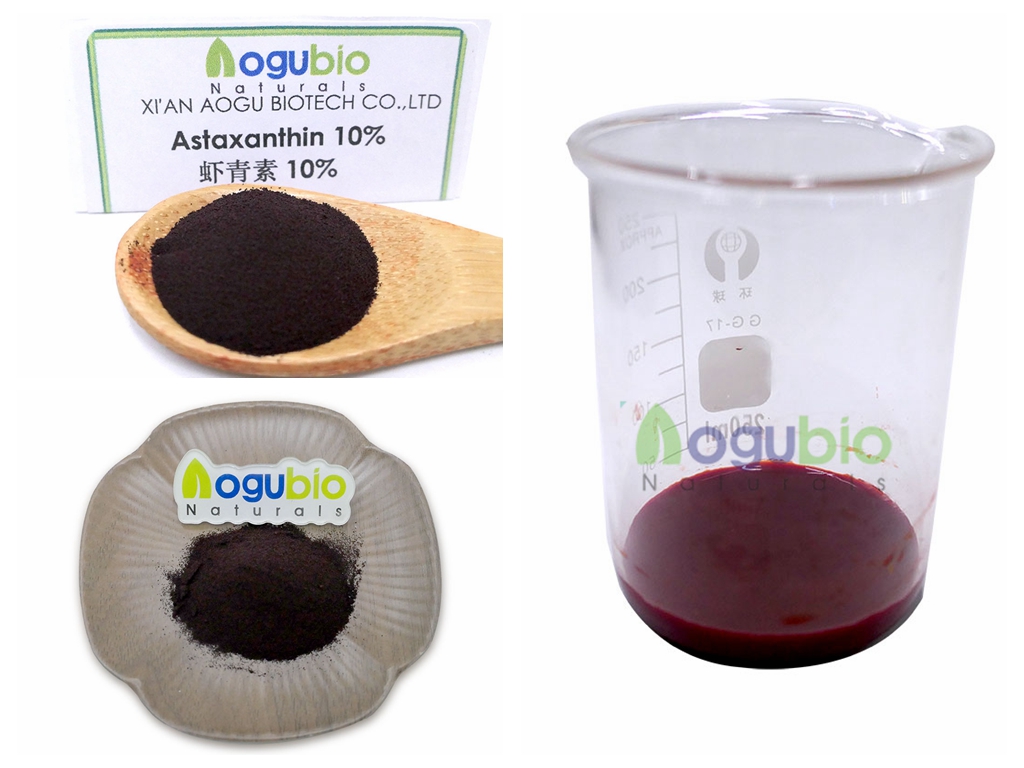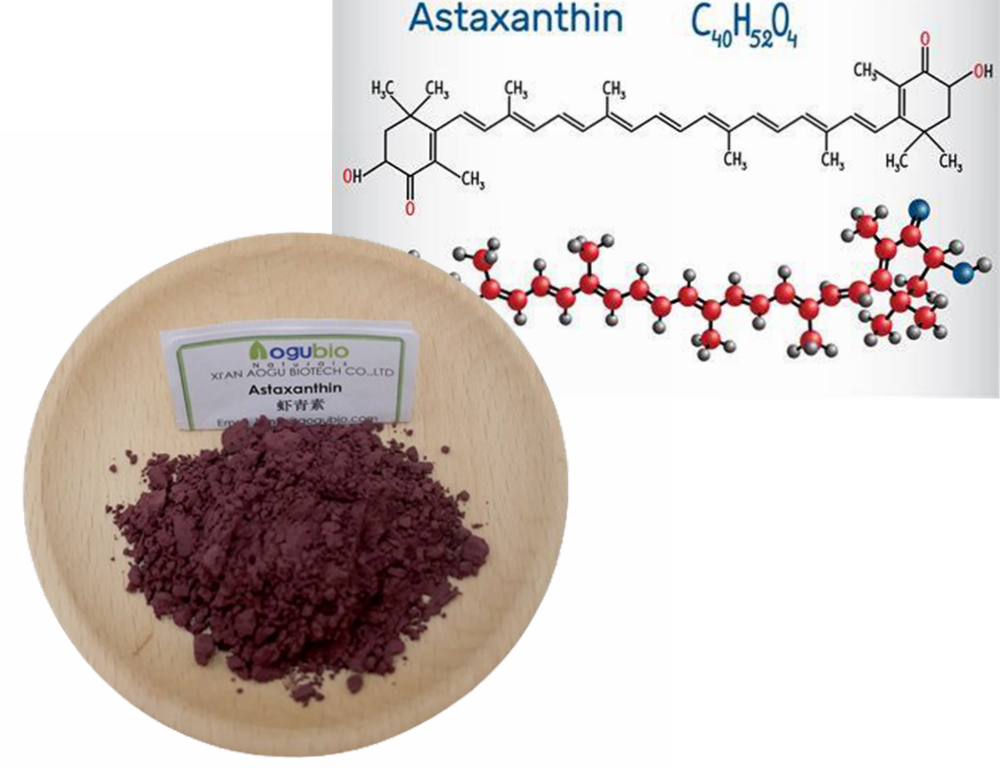
If you are looking for a natural supplement to benefit your skin and overall health, look no further than Astaxanthin. This powerful antioxidant is gaining attention for its numerous health benefits, and for good reason. In this article, we’ll explore the various benefits of astaxanthin, how to use it as a supplement, potential side effects, and the best natural sources.
What is astaxanthin?
Astaxanthin is a carotenoid pigment found in a variety of marine animals and plants. It gives salmon, shrimp and other seafood a pink or red color. Astaxanthin is known for its powerful antioxidant properties, helping to protect cells from damage caused by free radicals. This makes it an excellent supplement to support overall health.
Astaxanthin Health Benefits

The wide range of astaxanthin benefits makes it a popular supplement for those looking to support overall health. Some of the main benefits of astaxanthin include:
- - Skin Health: Astaxanthin has been shown to support skin health by reducing the appearance of fine lines and wrinkles, improving skin elasticity, and protecting against UV damage.
- -Eye Health: Astaxanthin may help support eye health by reducing the risk of age-related macular degeneration and improving vision.
- - Cardiovascular Health: Astaxanthin has been shown to support cardiovascular health by reducing inflammation, improving blood flow, and lowering blood pressure.
- - Immune Support: Astaxanthin can help support the immune system by reducing inflammation and oxidative stress.
- - Athletic Performance: Astaxanthin has been shown to improve endurance, reduce muscle fatigue, and speed recovery time after exercise.
Dosage and usage
When taking astaxanthin as a supplement, dosage may vary based on the individual and their specific health goals. Before starting any new supplement regimen, it is best to consult with a healthcare professional. Generally, a dose of 4-12 mg per day is considered safe and effective for most people. Astaxanthin supplements come in a variety of forms, including capsules, softgels, and even topical creams that are great for your skin.

side effect
While astaxanthin is generally considered safe for most people, there are some potential side effects to be aware of. These can include:
- - stomachache
- - nausea
- - diarrhea
- - Changes in skin color
As with any supplement, it is important to start with a lower dose and gradually increase the dose to assess your body's response. If you experience any adverse reactions, it is best to discontinue use and consult a health care professional.
Natural sources of astaxanthin

In addition to taking astaxanthin supplements, you can also incorporate natural food sources of astaxanthin into your diet. Some of the best sources of astaxanthin include:
- - Wild caught salmon
- - Krill oil
- - shrimp
- - lobster
- - trout
- - Microalgae supplement
At Aogubio, we specialize in the production and distribution of high-quality nutraceuticals, including astaxanthin supplements. Our products are designed to support overall health and wellness, with a focus on natural and sustainable ingredients. We understand the importance of providing reliable and effective supplements to the pharmaceutical, food, nutraceutical and cosmetic industries.
Astaxanthin is a powerful antioxidant with many benefits for skin and overall health. Whether you want to support skin, eye health, cardiovascular health, or the immune system, astaxanthin may be a beneficial supplement worth considering. As with any supplement, it is important to use astaxanthin responsibly and consult a healthcare professional before starting a new treatment regimen. With the correct dosage and use, you can experience the many benefits Astaxanthin has to offer.
Article writing:Rachel Ning
Post time: Jan-04-2024




